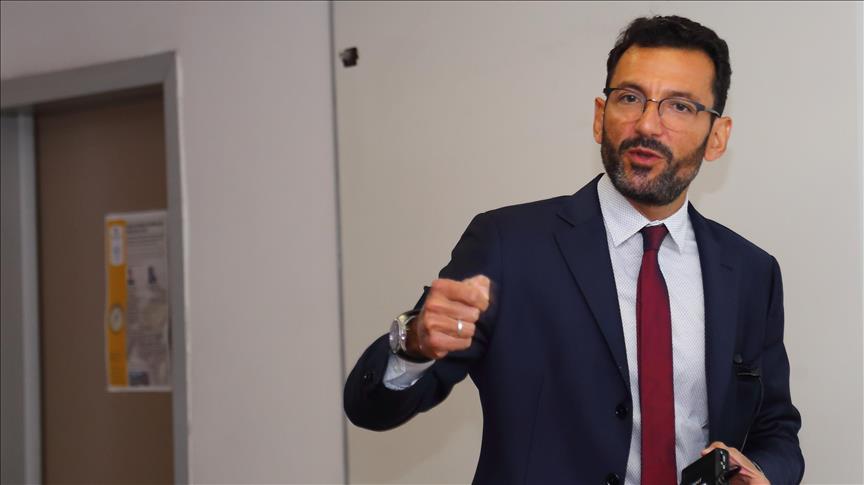 UN Economist Piergiuseppe Fortunato
UN Economist Piergiuseppe Fortunato
By Elif Selin Calik Muhasilovic
ISTANBUL
A senior economist with the United Nations has made a terse warning about the state of the global economy, saying that it "is increasingly vulnerable and fragile."
"Although it has been ten years since the 2008 Lehman Brothers crisis, it is obvious that the markets have not yet taken any lesson," UN Economist Piergiuseppe Fortunato told Anadolu Agency on Wednesday following a lecture he gave at the Istanbul Commerce University.
"It is difficult to find the origin of the financial collapse that started in 2007. During these ten years, there seems to be a widespread belief that many structural problems that facilitate the crisis cannot be changeable. The series of regulations were applied to reduce the leverage of banks. But, it is obvious that they are still not effective," said Fortunato, an economic affairs officer at the United Nations Conference on Trade and Development.
US economy
On the current situation in the U.S. economy, Fortunato cited a recent report by the American National Bank that warned of a recession.
"This report warns on the possibility of an economic recession in the U.S., along with a narrowing gap between short and long-term borrowing costs," he said, adding that the report also signaled the heightened risk due to President Trump’s protectionism.
Fortunato said a similar economic crisis is "knocking at the door".
"The current economic recovery policies in America are inadequate. These policies have not been well defined yet we now see an example of a fragile economy. In further years, there may be a more serious crisis than in 2008."
Economy in Europe
Fortunato gave even a grimmer picture of the European economy.
"If you look at figures in the European economy, you will face a worse scenario than the U.S. The improvement policies in Europe are progressing more slowly. As [UNCTAD] stated in the report published last year, the biggest reason for this slow recovery is the economic policy package signed by the EU countries," he said.
"There is no expectation of optimism in the long run due to the existence of political reasons that cannot be reached and countries such as Italy which are supporting anti-Euro markets.
"As no clear political conclusion has yet been reached in the negotiations on Brexit, this situation negatively affects European markets," he said.
"Every day that the Brexit negotiations are not concluded, it creates serious damage to the European economy."


